All people have regrets. You could have been smarter, kinder, better. Or when thinking about loved ones, “How can I take on their pain and lessen their suffering?” What about the fates of people you don’t know? What about the future? Lorraine Boyce thinks about the future. Sometimes, the only way that change or justice can be had is to wring it out with your own bare hands. Impact Magazine spoke with four individuals who are compelled to act to effect positive change.
Originally from Los Angeles, Boyce and her husband came to Escondido in 1954. She’s been a public servant for all her adult life. From being a surgical nurse to a city council member to the first woman mayor of Escondido. She has always been working to make things better. She was able to preserve Kit Carson Park as a public park. She made sure the female lifeguards earned the same pay as the male lifeguards.
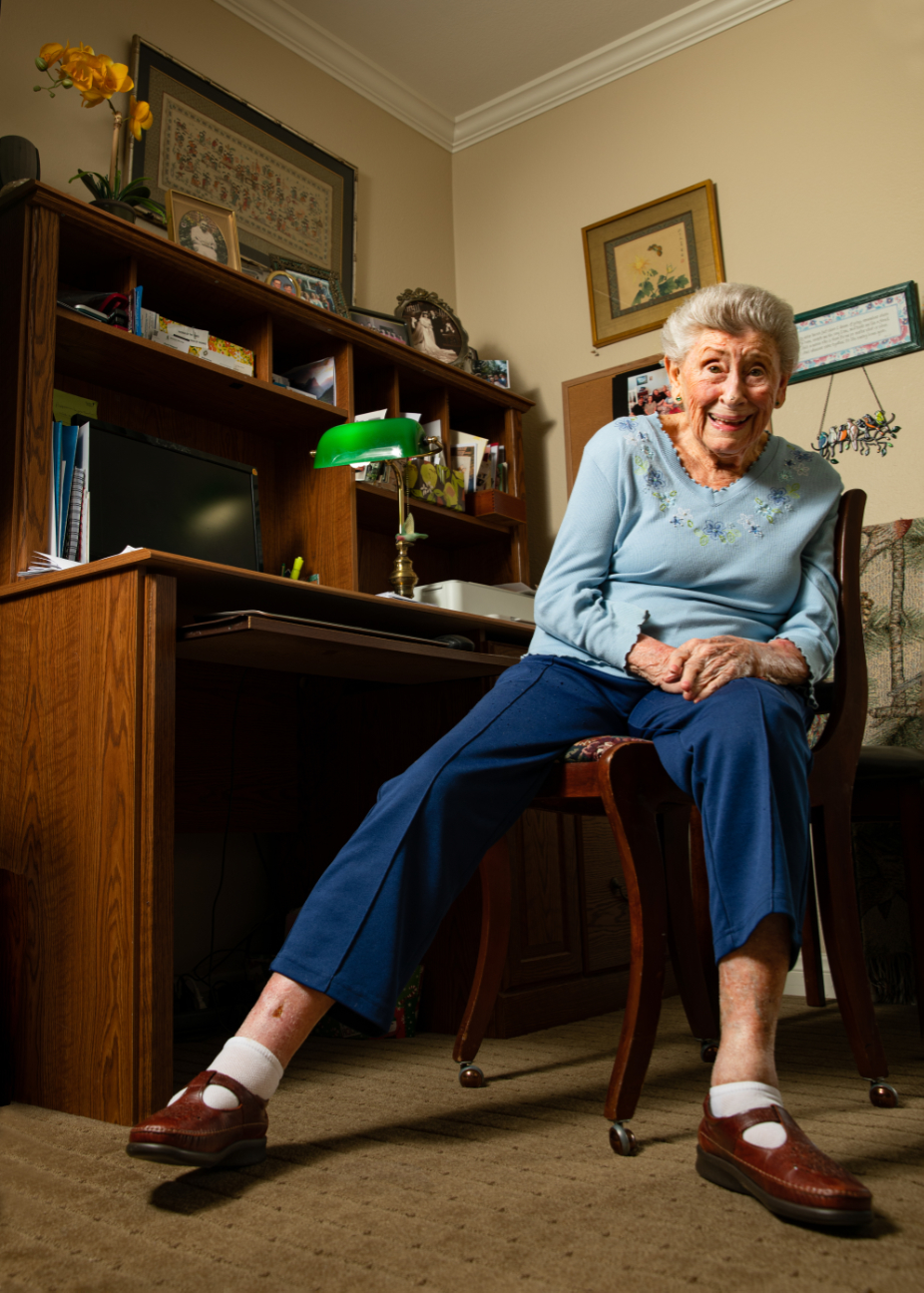
(Photo by Nicole Downey)
When she was mayor, four women came before the council asking for help with child care. The four men on the council with her told her that they take care of the roads and the water but not the residents. She and Ruth Clothier, a Palomar College child development professor she met on a flight, got the money and resources to establish a daycare facility now known as the Escondido Community Child Development Center (ECCDC).
“Right now, I’m working for women’s rights,” she said. “I don’t care how anybody feels about abortion, but that is a part of reproductive rights that women should have.”
Prior to Roe V. Wade, the decision where the Supreme Court recognized the right to abortion in 1973, Boyce was a student nurse at Los Angeles County Hospital. She spent time in the infected OB ward. Forty beds were filled with women who had obtained illegal abortions. This was before penicillin was available. “We had nothing to treat them. And they died of infection. Jesus,” she said, “I will always support women so that they have good medical care, reproductive care.”
Also advocating for women and families, the North County Equity Justice Coalition holds demonstrations in San Diego and Riverside Counties to bring attention to the deaths of people held in police custody. One was held at the Sheriff’s Office in San Diego on March 30, 2023.
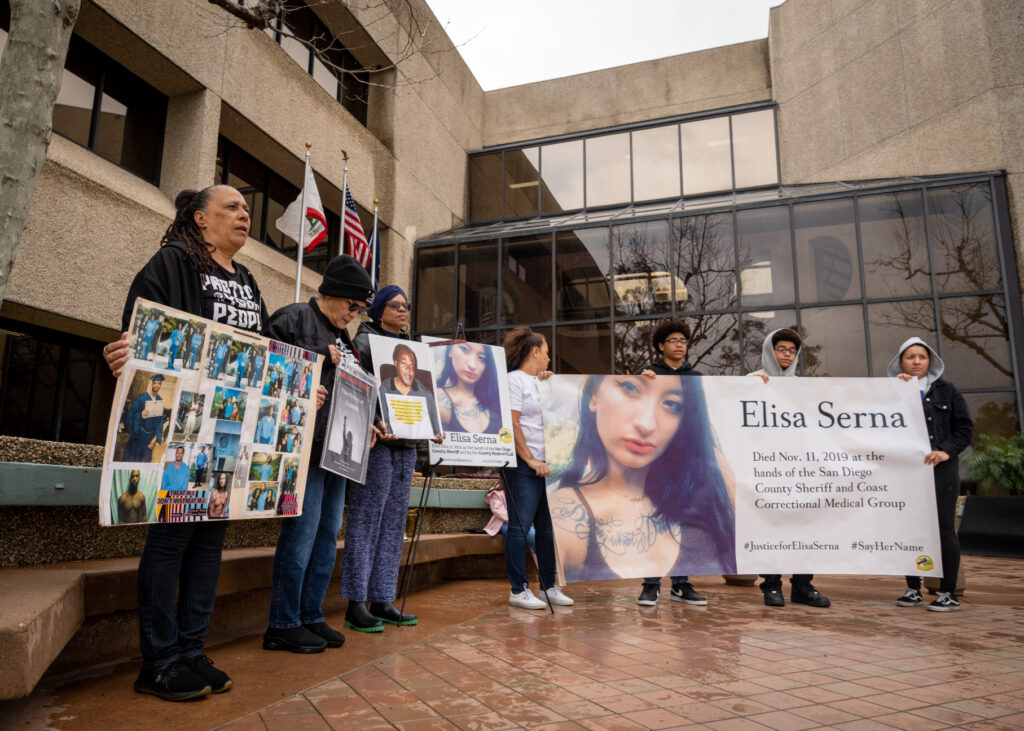
The North County Equity Justice Coalition holds demonstrations in San Diego and Riverside Counties to bring attention to the deaths of people held in police custody. (Photo by Joe Orellana)
People held by the state have constitutional rights such as due process, religious freedom, equal protection, and access to the parole process. Also, under the Eighth Amendment, they have protection against cruel and unusual punishment. Among these are humane living conditions, proper medical care, and protection from violence. Guilty or innocent, they shouldn’t be dying when in the custody of the state.
Shawn Mills, sister of Kevin L. Mills, said, “We can’t even talk about Kevin. My dad actually drove himself sick trying to get answers ‘til today to what happened to my brother. It’s impacting the families. I would not want what happened to my brother to happen to their sons…or anyone else’s son.”
According to Mills, the court entered the wrong birthdate for her brother. Because of a clerical error, Kevin Mills didn’t get to Patton State Hospital in San Bernardino. “The judge said he was supposed to get sent to Patton,” she said. “They didn’t give him medical treatment. We found something that said he had swollen legs…they couldn’t find him in the system. But they were able to find us to tell us he died.”
“My brother was in a mental crisis,” Mills continued. She recounts how her brother was deemed unfit to stand trial. And that he would not get the appropriate medical physical and mental treatment in jail. “My brother ended up dying November the 11, 2022.”
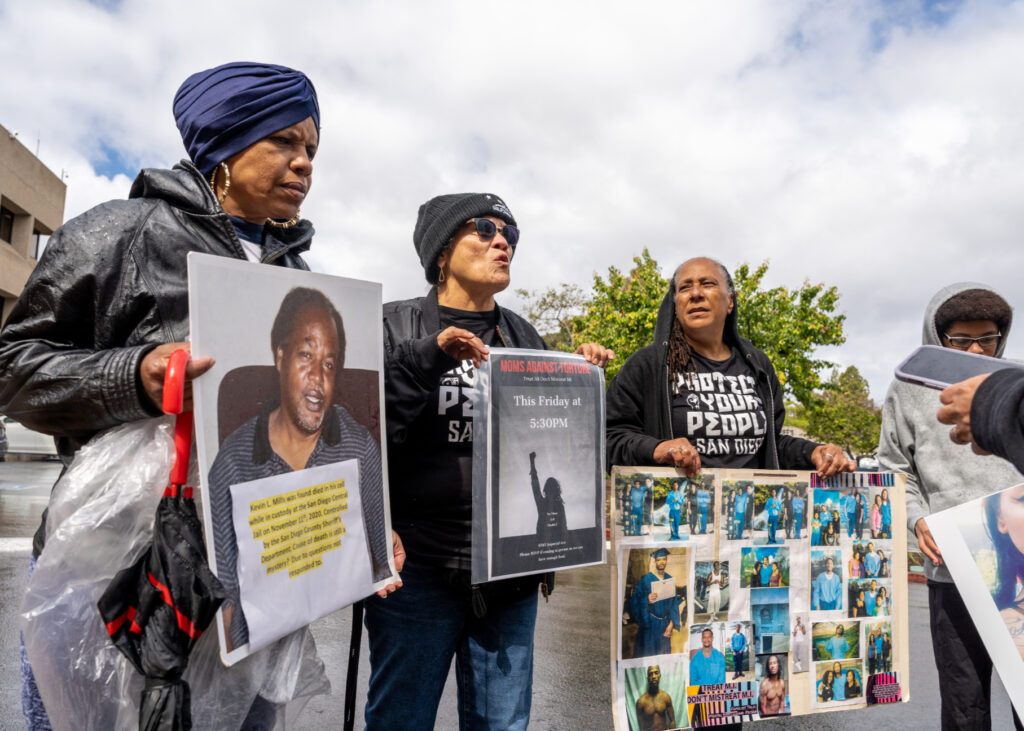
(l-r) Shawn Mills, Cheryl Canson, and Gina Mills protests outside of the Escondido Police Department on March 30, 2023. (Photo by Joe Orellana)
Gina Burns, who co-founded Moms Against Torture with Cheryl Canson and other mothers, was also at the demonstration. “My two sons suffered with mental illness inside prison,” Burns said. She is the mother of Jeremy Smith and Bernard Graham. No one answered her calls when she tried to gain information on her son’s status. “It could be fatal when they are in a mental health crisis.”
She explains that prisons and jails only worsen the condition of people with poor mental health. Punishment like solitary confinement hastens mental decline. “It’s nothing but the almighty dollar for these people. They are warehousing him for money, and a lot of them are dying, and who cares?” Burns said.
She notes that treatment is cheaper than incarceration. California spends $106,000 per year per inmate, according to the Legislative Analyst’s Office. “We lead the world in mass incarceration, past China. This is insane,” she said. The Prison Policy Initiative confirms this.
Burns carried a poster board with photos of her son. “You see my son here in chains. This is nothing but modern-day slavery. You see my son here in a cage.”
Demonstrations can be steps along the way to change and progress. Changing the law is a clear metric of progress. Dr. Juana Majel-Dixon is a formidable woman. She was key in getting protections for Indigenous people in the Violence Against Women Act (VAWA) and the Tribal Law and Order Act into law. She chaired the Tribal Actions Leadership Council. She holds a joint doctorate in U.S. policy and education and a master’s in behavioral science and psychology. She is a member, and was an officer, of the National Congress of American Indians. She serves on her tribe’s council and is a citizen of the Pauma-Yuima Band of Luiseno Indians, a traditional leader and a healer.
“I remember standing before the attorney general (Eric Holder), and he came with a file this big,” she said, indicating a height of almost a foot. “So you found my file. And he laughed. ‘How’d you know?’” This meeting was held in 2013 when the local tribes put a stop to a dump being placed in Gregory Canyon. She said, have you come here to shoot me, to kill me in person? He’s the attorney general. Right? And he goes, ‘No. You are exonerated.’”
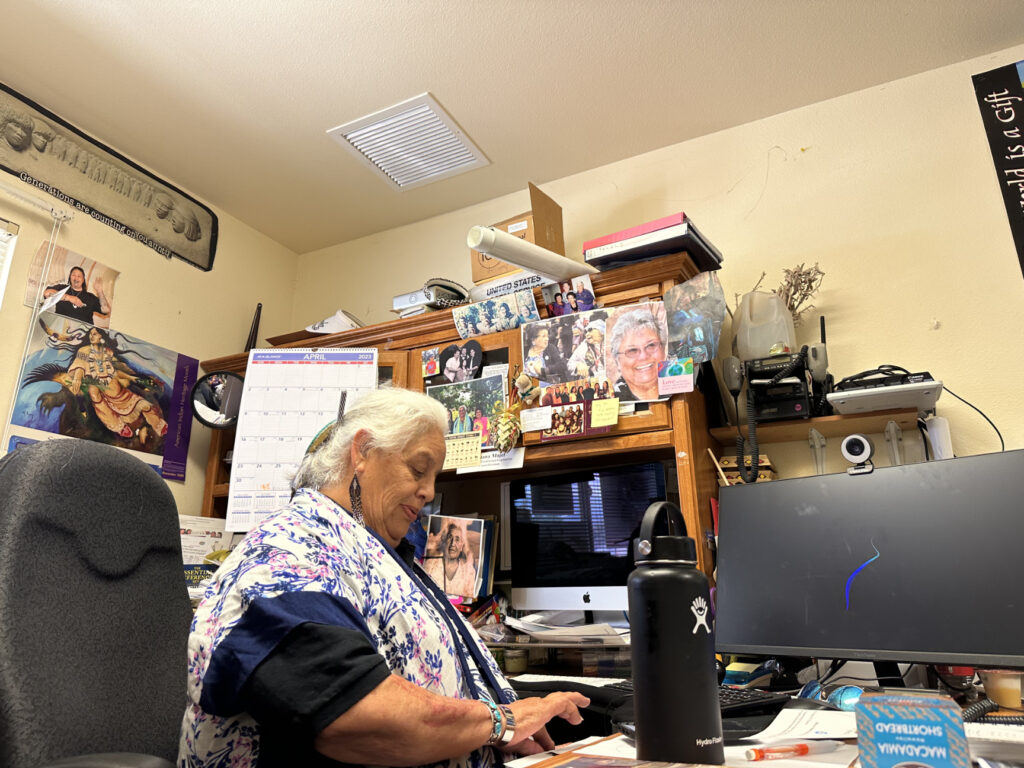
Dr. Juana Majel-Dixon is a formidable woman. She was key in getting protections for Indigenous people in the Violence Against Women Act (VAWA) and the Tribal Law and Order Act into law. (Lisa Burke/The Telescope)
Miajel-Dixon began her activism as a young college student. “We were there in ‘69, ‘70, ‘71. You had the American Indian Movement, the Farm Workers Movement, Black Panthers, as those movements (are) occurring, they take us up to Alcatraz,” she said. “We met with traditional elders (from Pine Ridge) at that time.” She said the attention of the foreign press reduced the abuse the federal authorities inflicted on the activists.
Later, when California failed to comply with the Indian Child Welfare Act (ICWA) of 1978, “That lit a fire under me,” Dixon said. Most egregiously, California removed the Native identification of children and called the testimony in the court of tribes and families, indicating the political status of Native children “hearsay,” causing difficulty in the implementation of the act.
The provisions of ICWA are considered the “gold standard” in child welfare, according to child development experts. Also, forcibly transferring children from one group and placing them with another with the resulting loss of language, culture, and familial bonds is genocide, according to the United Nations Genocide Convention.
“We had to look collectively to effect the changes (so) that we could survive. That meant Indian Health, that meant job corps, and that meant other things that would benefit the tribes,” she said. “We agree to have sovereign-to-sovereign relationships. And we agree on the core principles of what was sacred, of what was traditional, what was custom is a matter in which you celebrate both the sacred and traditions.
“You have to understand, all women are sacred.”
“We are not finished,” Dixon said, “We have more to do. And let us take the leadership (of) the women of our nations who birthed us, who raised us, who protect us, and die with the whisper on their lips of their love for us. Let us take what they have taught us every generation. If it had not been for them, we would not be a ‘we.’”
So what can be done and where to start? Educate yourself. Read, listen, and question. Take the opportunity in meeting Palomar College’s breadth requirements to explore topics. Join clubs and community organizations—political and otherwise—campus are clubs that focus on the environment, or gender equality. Rallies are fun. You can make friends or at least know you are among allies.
Volunteer, or if you have the luxury of choosing the kind of job you do, choose meaningful work. The Palomar College Office of Student Life and Leadership has many opportunities to volunteer.
Make art and tell stories because we need to communicate with each other. You better get on it because no one can do it alone, and you may find our very survival depends on it. •
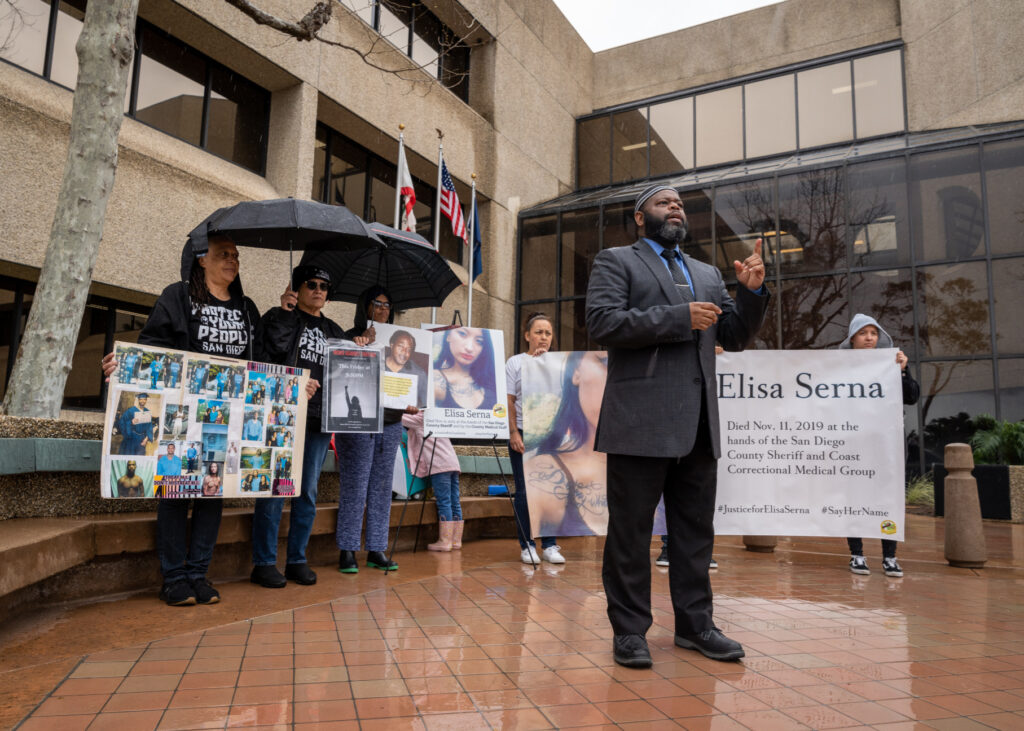
Yusef Miller from the North County Equity & Justice coalitions speaks during the protest. (Photo by Joe Orellana)

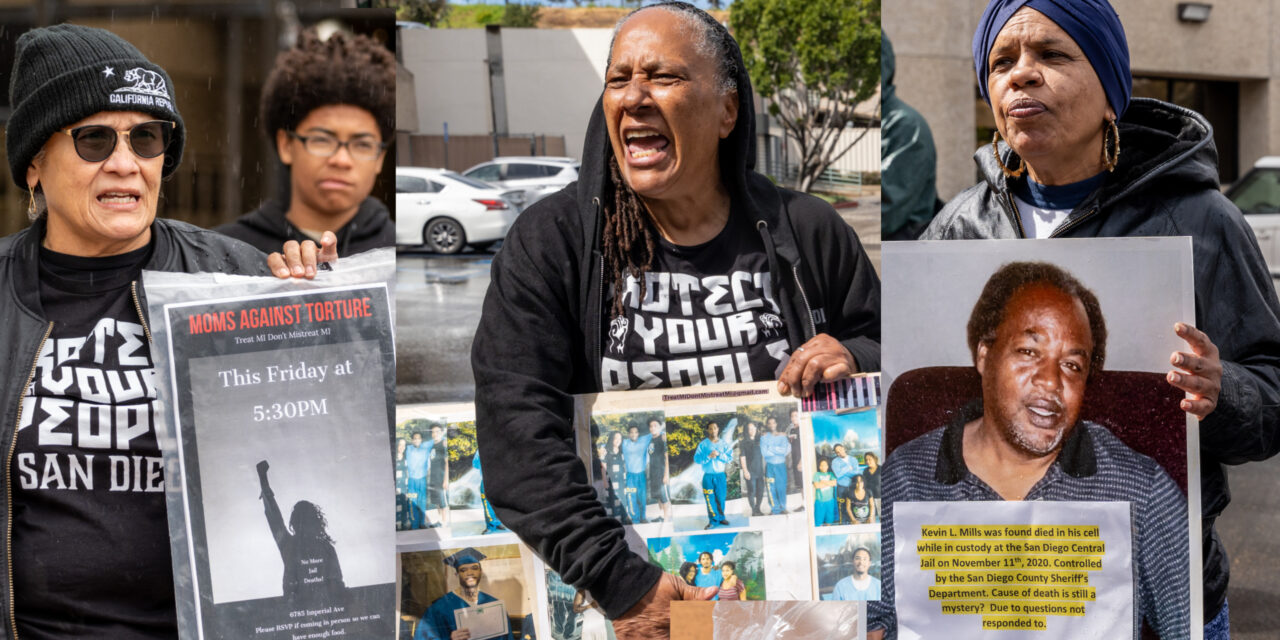

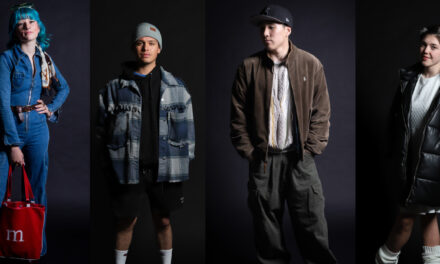


Recent Comments